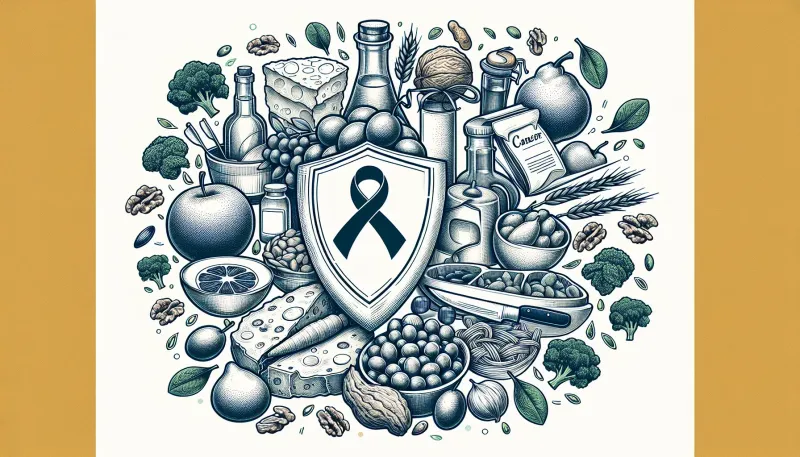Mediterranean Diet and Cancer: Exploring the Health Benefits

Discover how the Mediterranean diet can play a significant role in reducing cancer risk. Learn the health benefits, best practices, and in-depth scientific insights on the Mediterranean diet and cancer prevention.
The Mediterranean diet, celebrated for its rich flavors and health benefits, has drawn considerable attention in recent decades, particularly in the context of cancer prevention. This article delves into the intricate connection between the Mediterranean diet and cancer, elucidating how this centuries-old dietary pattern can contribute to reduced cancer risk and support overall health.
Understanding the Mediterranean Diet
The Mediterranean diet is inspired by traditional eating habits of countries bordering the Mediterranean Sea, such as Greece, Italy, and Spain. It emphasizes whole foods, healthy fats, and a plant-forward approach. Key components of the Mediterranean diet include:
- Fruits and vegetables
- Whole grains
- Legumes
- Nuts and seeds
- Olive oil as the primary fat source
- Moderate consumption of dairy products, mostly in the form of cheese and yogurt
- Fish and poultry instead of red meat
- Limited intake of sweets and processed foods
- Red wine in moderate amounts
The Link Between the Mediterranean Diet and Cancer
Emerging research underscores a notable association between adherence to the Mediterranean diet and a reduced risk of various types of cancer. This connection is primarily attributed to the diet's anti-inflammatory properties, rich nutrient profile, and high content of antioxidants.
Anti-inflammatory Effects
Chronic inflammation is a well-known precursor to cancer. The Mediterranean diet is rich in anti-inflammatory foods such as olive oil, nuts, and fatty fish, which contain omega-3 fatty acids and polyphenols. These compounds help in reducing inflammation markers in the body, potentially mitigating cancer progression.
A Wealth of Antioxidants
Fruits and vegetables are cornerstones of the Mediterranean diet, providing a vast array of antioxidants, including vitamins C and E, flavonoids, and carotenoids. Antioxidants neutralize free radicals, unstable molecules that can cause DNA damage and contribute to cancer development.
Nutrient-Rich Foods
The diet is abundant in nutrients such as fiber, vitamins, and minerals that support immune function and overall well-being. High-fiber foods, including whole grains and legumes, aid in maintaining a healthy digestive system, which is crucial in reducing the risk of colorectal cancer.
Scientific Evidence Supporting the Mediterranean Diet
Several studies have provided compelling evidence for the Mediterranean diet's role in cancer prevention. Here are some key findings:
Reduced Risk of Breast Cancer
A study published in JAMA Internal Medicine found that women who adhered closely to the Mediterranean diet had a 68% lower risk of breast cancer, especially hormone-receptor-negative breast cancer, compared to those who did not adhere to the diet.
Protection Against Colorectal Cancer
Research published in the journal Gut indicates that a strict adherence to the Mediterranean diet is associated with a lower incidence of colorectal cancer. The high fiber content, coupled with anti-inflammatory properties of the diet, plays a significant role in this protective effect.
Lower Incidence of Prostate Cancer
A study in the International Journal of Cancer showed that men who followed a Mediterranean diet had a lower risk of prostate cancer. This was attributed to the diet's balance of healthy fats, antioxidants, and anti-inflammatory compounds.
Incorporating the Mediterranean Diet into Your Lifestyle
Transitioning to a Mediterranean diet doesn't require drastic changes. By making incremental adjustments and prioritizing whole, nutrient-dense foods, you can effortlessly adopt this healthy eating pattern. Here are some practical tips:
Start with Small Changes
Begin by incorporating more fruits, vegetables, and whole grains into your meals. Replace butter with olive oil, and opt for fish or poultry instead of red meat. Gradually reduce your intake of processed foods and sugary treats.
Explore New Recipes
Experiment with Mediterranean-inspired recipes that utilize fresh ingredients and simple cooking methods. From Greek salads to Spanish paella, the options are endless and delicious.
Prioritize Plant-Based Meals
Focus on plant-based dishes such as bean stews, lentil soups, and vegetable-based casseroles. These meals are rich in nutrients, fiber, and anti-inflammatory compounds.
Mindful Eating and Moderation
Practicing mindful eating, which involves savoring food and eating slowly, can enhance your enjoyment of meals and help you listen to your body's hunger signals. Moderate consumption, particularly of red wine and treats, is essential.
Conclusion
The Mediterranean diet is more than just a culinary tradition; it's a scientifically-backed approach to enhancing health and reducing the risk of cancer. By embracing this dietary pattern, you can enjoy a variety of delicious foods while promoting longevity and well-being. As always, consult with a healthcare professional before making significant dietary changes to ensure it aligns with your individual health needs.



























